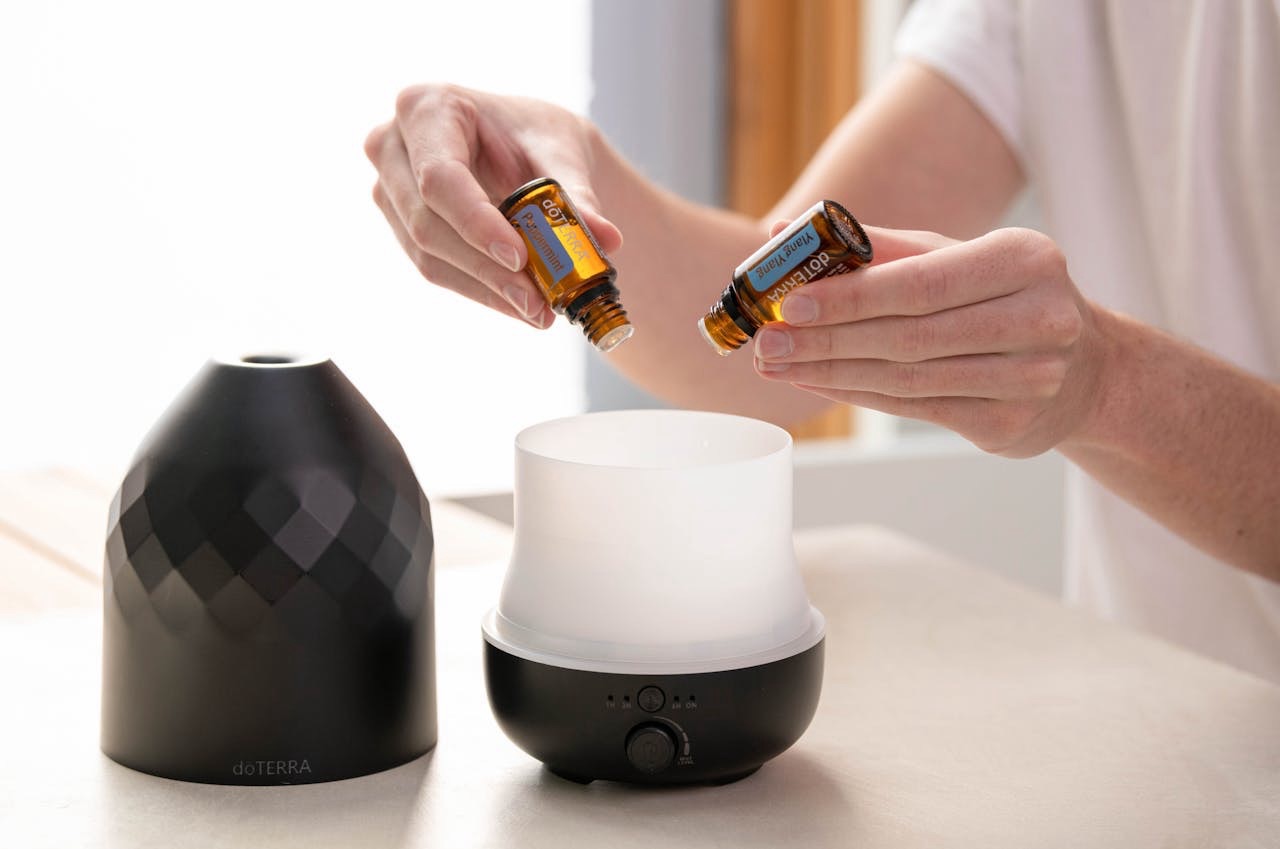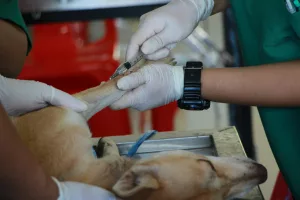Essential oils and their diffusers are increasingly popular for their calming properties, pleasant aromas, and potential health benefits for humans. However, pet owners often wonder if these products are safe to use around their pets. While essential oils may offer therapeutic benefits for people, they can pose significant risks for pets if not used correctly. The safety of essential oil diffusers around pets depends on several factors, including the type of oil being used, the method of diffusion, and the species of the pet.
In this article, we will explore the potential risks and benefits of essential oil diffusers for pets, as well as provide guidelines for safe usage around cats, dogs, and other household animals.
The Dangers of Essential Oils for Pets
Essential oils are highly concentrated plant extracts that contain potent compounds. While these compounds can provide therapeutic benefits for humans, they can have adverse effects on pets, especially when inhaled, ingested, or absorbed through the skin. Pets, particularly cats and smaller animals, have more sensitive respiratory systems and livers, which makes it harder for their bodies to process essential oils.
1. Respiratory Issues
One of the primary concerns when using essential oil diffusers around pets is respiratory irritation. Pets, especially cats, have a more sensitive respiratory system than humans, and some essential oils can irritate their airways, causing coughing, sneezing, or difficulty breathing. In severe cases, prolonged exposure to certain essential oils can lead to respiratory distress or even poisoning.
Oils like eucalyptus, tea tree, peppermint, and citrus are known to be particularly harmful to pets when inhaled in large amounts. Diffusing these oils in enclosed spaces or using too much oil at once can exacerbate the risk of respiratory issues for pets.
2. Liver Toxicity
Another significant risk for pets, especially cats, is liver toxicity. Cats lack certain enzymes in their liver that help break down and eliminate compounds found in essential oils. This makes them particularly susceptible to toxicity when exposed to oils such as tea tree, wintergreen, and clove. Even small amounts of these oils can overwhelm a cat’s liver, leading to symptoms such as vomiting, lethargy, and, in severe cases, liver failure.
Dogs are also at risk of liver toxicity from prolonged or excessive exposure to certain oils, although they are less vulnerable than cats due to their ability to process oils more efficiently.
3. Skin Irritation and Burns
Some pets may come into direct contact with essential oils through diffusers that release mist onto surfaces like furniture or bedding. If oils are absorbed through the skin or accidentally ingested when a pet licks a contaminated surface, it can lead to skin irritation, burns, or more serious health issues.
Oils like cinnamon, clove, and peppermint are known to cause skin irritation, and even diluted oils can cause reactions in sensitive pets. Pets with underlying skin conditions may be even more prone to irritation when exposed to essential oils.
4. Neurological Effects
Certain essential oils can cause neurological symptoms in pets, particularly when used in concentrated forms or over long periods. Oils like tea tree, pine, and ylang-ylang are known to have toxic effects on the nervous system, leading to symptoms such as tremors, disorientation, or even seizures in severe cases.
Pets with pre-existing neurological conditions are particularly vulnerable to the adverse effects of these oils, and owners should exercise extreme caution when diffusing oils in the presence of pets with known sensitivities.
Which Essential Oils Are Toxic to Pets?
Some essential oils are known to be toxic to pets, particularly cats and dogs. Here are some of the most commonly used essential oils that should be avoided in households with pets:
Toxic Essential Oils for Cats:
- Tea Tree Oil: Highly toxic to cats; can cause liver damage and neurological issues.
- Eucalyptus Oil: Can lead to respiratory distress and liver toxicity.
- Citrus Oils: Lemon, orange, and lime oils can cause vomiting and respiratory irritation.
- Peppermint Oil: Known to cause breathing difficulties and skin irritation.
- Pine Oil: Can lead to respiratory and neurological issues.
- Ylang-Ylang: Can cause breathing problems and lethargy.
- Wintergreen: Can lead to toxicity if inhaled or ingested.
Toxic Essential Oils for Dogs:
- Tea Tree Oil: Can cause skin irritation, vomiting, and liver toxicity in dogs.
- Wintergreen Oil: Known to be highly toxic to dogs, even in small amounts.
- Cinnamon Oil: Can cause skin irritation and toxicity when ingested.
- Pennyroyal Oil: Toxic to dogs and can cause liver damage and seizures.
- Clove Oil: Can lead to gastrointestinal and neurological symptoms.
Essential Oils That Are Safer for Pets
While many essential oils can be harmful to pets, there are a few oils that are generally considered safer for use around animals when properly diluted and diffused in moderation. However, even these oils should be used with caution, and it’s always a good idea to consult a veterinarian before introducing essential oils into a pet-friendly household.
1. Lavender Oil
Lavender oil is one of the more commonly used oils considered relatively safe for both cats and dogs. It has calming properties and is often used to help reduce anxiety and stress in pets. However, it’s essential to use it sparingly and in well-ventilated areas, as pets can still experience sensitivity to the oil.
2. Chamomile Oil
Chamomile oil is another gentle essential oil that can help calm pets and reduce anxiety. It’s often used in diffusers to create a peaceful environment for pets dealing with stress or restlessness. Chamomile is generally safe for both cats and dogs when used in low concentrations.
3. Frankincense Oil
Frankincense oil has been reported to have immune-boosting and anti-inflammatory properties and is often used in diffusers to help improve respiratory function in pets. It’s considered safe for dogs and cats when used in moderation, but, like any oil, it should be diffused in a well-ventilated space and used with caution.
4. Cedarwood Oil
Cedarwood oil is a popular oil for repelling insects and promoting relaxation in pets. It’s considered one of the safer essential oils for dogs and cats, although, like other oils, it should be used in moderation and with proper ventilation.
Best Practices for Using Essential Oil Diffusers Around Pets
If you decide to use essential oil diffusers in a home with pets, it’s important to follow these best practices to minimize the risk of adverse effects:
1. Use Diluted Oils
Always dilute essential oils before diffusing them around pets. Essential oils are highly concentrated, and even safe oils can cause irritation if used in high concentrations. Start with just a few drops of oil in your diffuser and monitor your pet’s reaction.
2. Diffuse in Well-Ventilated Areas
Always use essential oil diffusers in well-ventilated areas where pets can easily leave the room if they choose. Avoid using diffusers in small, enclosed spaces where the concentration of oils can quickly build up and become overwhelming.
3. Limit Diffusing Time
Do not run your diffuser continuously, especially in rooms where pets spend a lot of time. Limit diffusion to 30 minutes to an hour at a time, and allow for breaks in between sessions to prevent overexposure.
4. Monitor Your Pet’s Behavior
Keep a close eye on your pet’s behavior when you first start diffusing essential oils. Signs of irritation or distress may include coughing, sneezing, drooling, vomiting, lethargy, or difficulty breathing. If your pet exhibits any of these symptoms, stop using the diffuser immediately and consult a veterinarian.
5. Keep Diffusers Out of Reach
Place essential oil diffusers in areas where pets cannot easily knock them over or come into direct contact with the oil. Essential oil bottles should also be kept securely out of reach to prevent accidental ingestion.
Conclusion: Are Essential Oil Diffusers Safe for Pets?
Essential oil diffusers can be used safely in pet-friendly homes, but it’s essential to exercise caution and follow best practices. Certain oils, such as lavender, chamomile, and frankincense, may be safer options when used in moderation and in well-ventilated areas. However, many oils, such as tea tree, eucalyptus, and peppermint, are toxic to pets and should be avoided entirely.
Pet owners should always monitor their pets closely for signs of discomfort or irritation when using essential oil diffusers. If you have concerns or are unsure about which oils are safe for your pets, it’s best to consult with a veterinarian who can provide personalized advice on how to use essential oils in a way that ensures the safety and well-being of your pets.




